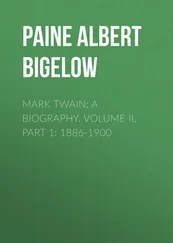Albert Paine - Life and Lillian Gish
Здесь есть возможность читать онлайн «Albert Paine - Life and Lillian Gish» — ознакомительный отрывок электронной книги совершенно бесплатно, а после прочтения отрывка купить полную версию. В некоторых случаях можно слушать аудио, скачать через торрент в формате fb2 и присутствует краткое содержание. Жанр: foreign_prose, foreign_antique, на английском языке. Описание произведения, (предисловие) а так же отзывы посетителей доступны на портале библиотеки ЛибКат.
- Название:Life and Lillian Gish
- Автор:
- Жанр:
- Год:неизвестен
- ISBN:нет данных
- Рейтинг книги:3 / 5. Голосов: 1
-
Избранное:Добавить в избранное
- Отзывы:
-
Ваша оценка:
- 60
- 1
- 2
- 3
- 4
- 5
Life and Lillian Gish: краткое содержание, описание и аннотация
Предлагаем к чтению аннотацию, описание, краткое содержание или предисловие (зависит от того, что написал сам автор книги «Life and Lillian Gish»). Если вы не нашли необходимую информацию о книге — напишите в комментариях, мы постараемся отыскать её.
Life and Lillian Gish — читать онлайн ознакомительный отрывок
Ниже представлен текст книги, разбитый по страницам. Система сохранения места последней прочитанной страницы, позволяет с удобством читать онлайн бесплатно книгу «Life and Lillian Gish», без необходимости каждый раз заново искать на чём Вы остановились. Поставьте закладку, и сможете в любой момент перейти на страницу, на которой закончили чтение.
Интервал:
Закладка:
Well dear I am away from Massillon once again, but feel as if I had left something behind this time that I never left before.
I arrived here at 4:05 yesterday afternoon and have been on one continual trot ever since then, and I leave here tonight at 11:25, and when I wake up I’ll be in St. Louis, as this is an awfully fast train....
[An all-night ride in a day coach, but what was that to her?]
Poor Dorothy what did she do when I left? I could hardly keep the tears back, and I couldn’t say a word for the lump in my throat.... I do hope she won’t be homesick. You know that feeling....
“ You know that feeling ”—who knew it better than herself? The letter ends, “Your loving make-believe sister.” It bears her East St. Louis address: 246 Collinsville Ave.
A week later she wrote, “How is my little fat sister? Does she seem to be satisfied? Bless her old fat heart, she is bad but I love her.”
She tells of a day’s trip to a small town in Illinois, and how, when she got back to the store, they were “awfully rushed, so of course I had to help.” In another letter, we hear of a girl named Mertice, who is going to give a party for her, “at a big Hall.”
They have ordered an automobile, seven passenger—45 horsepower, but it won’t be here until March. Oh, I wish you would hear her talk about all the trips we are going to take. She knows all about you, Nell. She couldn’t help but know if she is around me very long.
XIV
A CONVENT SCHOOL. TYPHOID
Lillian never got to ride in Mert’s 45 horsepower car. Almost immediately she found herself shut safely in a convent school across the river—The Ursuline Academy—not for anything she had done, or was likely to do, but because this plan seemed to offer special advantages. Her mother lived in a tiny room, near the store. It was in no sense a home, and working as she did, twelve or fourteen hours a day, she could give a daughter very little care. A public school would mean that Lillian’s free hours would have to be spent in the store, on the street, or with her aunt across the river. No place for play, no place for study. The Ursuline Academy provided board and tuition for twenty dollars a month, and was thought to be very good.
Lillian was not at first greatly interested in the convent idea, especially when she learned she could leave it but once a month. It was just another kind of those dreaded “Institutions.”
She changed her mind about all that, later. It seemed to her that at last she had reached a place of peace and rest. No troubles, no dangers, any more. She was a natural religieuse , and found a vast and nameless comfort behind the high walls and closed windows. The place might have been in the midst of the Sahara, for all that could be seen of the outer world.
The convent régime was not especially severe. Only the early rising was hard. They rose at 5:30, and had breakfast by candlelight—mild coffee and thick slices of bread. At ten came a between-luncheon, bread and jam; a hearty luncheon at noon, with bread and jam again at four; then supper, so they really ate five times a day. There was plenty of work: lessons, piano practice, French … but one could walk in the little garden, and there was a tennis court, and trees. And something more: to Nell she wrote:
We are going to have a play and an opera, and what do you think, they wanted me to play Kate’s father in “The Taming of the Shrew.” Can you imagine me taking that part and singing in a real low voice? But I told them I could not, and so they are going to give me a part in the play.
They knew nothing of her stage life—an episode always carefully suppressed. Baggage labels were scraped off when they left New York. The stage door was slammed to. But she could not disguise her technical knowledge—not altogether. They gave her Bianca in the opera, and a leading part in the play, as soon as they saw her rehearse.
Lillian confessed later that her ambition at this time was to be either an actress or a nun—or a librarian. She had a passion for reading, and thought as a librarian she could gratify it. To Nell, she wrote: “I am not going out for a month and will have to write all my letters on the sligh,”—which was a sin, though spelling it in that way seems to modify it a good deal—“and carry them in my stocking until mother comes and mails them.” Oh, dear, and in a convent, where she thought she would like to remain forever, and become a sister, like Mother Evaristo, whom she loved very much indeed! To another sister, teacher of elocution and dramatics, she confided her wish to take the veil, and was advised against it— advised to go on the stage —which led to penance, on the part of the sister, a dear soul.
Each Sunday her mother came to see her, with news of the outside world, and once a month, with the others, she was allowed to pass the gates—a privilege she valued less and less. She might so easily have become a nun; and in the tragic “White Sister,” made fourteen years later, we have seen just what sort of a nun she would have become. That picture was really a pendant of her earlier experience, which she never remembered but with a peculiar affection, and a sense of peace. During the eight or nine months she was with them, the sisters made no attempt to influence her religious views, but they were always tenderly kind to her, and always later felt that she belonged to them.
School ended … Dorothy came from Massillon. They lived with their St. Louis aunt, boarders, going each day across the river, to help. A narrow hall ran along one side of the shop, dividing it from a “Biograph” moving-picture place. They did not know the word Biograph. They thought it the name of a man—probably a rather kindly man, for his doorkeeper let them cross the hall and enter by a side door, free. They did it often, when trade was dull, and found the pictures good fun, though of course they would never act in anything like that—no real actresses would. When they grew up, they might go back on the stage, but never into the movies. And the Weaver who sits at the Loom of Circumstance smiled faintly, it may be, observing from his pattern that in exactly two years these young scorners were to be making pictures for that same “Mr. Biograph.”
There came a day when Lillian felt barely able to creep out of bed in the morning; when at the shop she could hardly hold up her head, or lift her feet. She had to drive herself to keep going. She knew that she was ill—but said nothing; her mother was too busy to bother with a sick child. Finally, one day when she crept home with Dorothy, to her aunt’s, she could go no further. She fell across the bed, unable to undress, even to take off her shoes. A doctor came. It was typhoid fever.
Disordered days … black, fantastic nights, a fire of unquenchable thirst … a river at which one lay down and drank and drank … and then the river ran dry … she was burning up, but this was torture … not a river but a tub—a bathtub of cool water. Oh, quiet and sleep … an awakening to a possession of terrible hunger—a feeble pleading for food … just a little....
Dorothy, unable to resist, brought her something from her own luncheon … but, then the fever again … relapse … semi-recovery … relapse again. Surely she could never live through this.
Somehow the frail constitution stood the test. Dorothy, permitted one day to enter the room, found Lillian with a wish-bone in her hand. Struck with terror, Dorothy started toward her, to take it away. But the patient, a staring little ghost, all eyes, put it to her lips. If Dorothy came closer, she would eat something, and surely die. Each time Dorothy started toward the bed, the bone went to Lillian’s lips. She hurried out to tell the others about it—and was told that Lillian was better—much better, this time—the wish-bone was just a bone—nothing on it, not a thing.
Читать дальшеИнтервал:
Закладка:
Похожие книги на «Life and Lillian Gish»
Представляем Вашему вниманию похожие книги на «Life and Lillian Gish» списком для выбора. Мы отобрали схожую по названию и смыслу литературу в надежде предоставить читателям больше вариантов отыскать новые, интересные, ещё непрочитанные произведения.
Обсуждение, отзывы о книге «Life and Lillian Gish» и просто собственные мнения читателей. Оставьте ваши комментарии, напишите, что Вы думаете о произведении, его смысле или главных героях. Укажите что конкретно понравилось, а что нет, и почему Вы так считаете.












